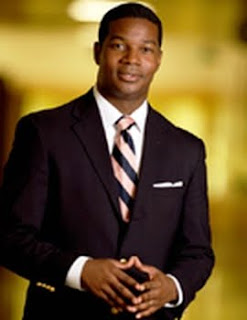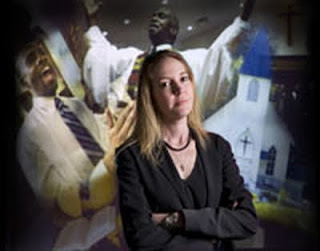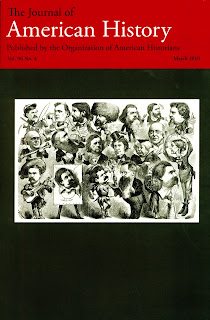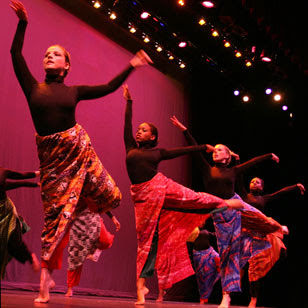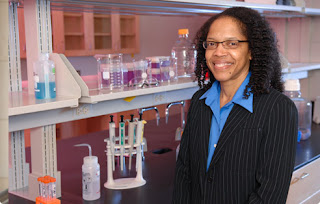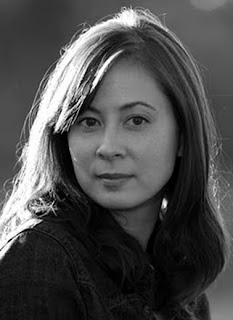Greater Los Angeles: African American Chamber of Commerce Dinner Remarks – International Trade Focus.
On behalf of President Barack Obama and Secretary of Commerce Gary Locke, I want to thank you for allowing me to join you this evening.
Secretary Locke was unable to attend this event, but he asked that I extend his heart-felt thanks to the Board of Directors and staff of GLACK and Chairman and Co-Founder Gene Hale who graciously extended the invitation to address you this evening. I’d also like to thank Kerman Maddox a good friend of the Administration, for being here.

David Hinson | I am always happy to be in Los Angeles away from the sometimes frigid weather back in D.C. From the looks of this very attractive crowd, I am going to have to make my way back to Los Angeles more often. My younger sister, Peyton, lives out here so I have a legitimate excuse! I am glad she is able to join me this evening.
I feel privileged to be here to talk to you about the priorities of our Administration, an Administration that would not be in office if not for all of you.
So first I want to thank you for your support as we strive to continue to earn your trust ---- and confidence. |
The Minority Business Development Agency is also fortunate to have members of GLAAC who serve on the Advisory Committee of our Los Angeles Business Development Center.
These members include:
Delenn Ayo from the Walt Disney Company, who also acts as the Advisory Committee Chair; Linda Wright from the Los Angeles County Metropolitan Transportation Authority; Aura Mc-Cracken from AEG; Bob Blake from Bob Blake & Associates; and Michelle Smith Ballard from Turner Construction Company.
Thank you all for your service and dedication to minority business development.
I also want to recognize and thank the state and federal officials who are here and finally, I would like to take a moment and thank the founders of GLAAC for having the vision to create a powerful organization that promotes the growth and expansion of African American-owned businesses in the global arena.
President Obama’s National Export Initiative, an effort to encourage all businesses, including African-American owned businesses, to grow through global trade demonstrates that the Administration shares this vision.
A short 24 months ago, many of you took part in a national conversation. This conversation centered on how to expand opportunity for all of the citizens of this great nation - on how to re-establish our nation as a respected leader in the global arena - and on how to strengthen our economy not just for today, but also for the long run.
But by the time President Obama took office, we were facing the greatest economic crisis of our lifetime. The nation was shedding 700,000 jobs per month, housing values had imploded, and credit was all but frozen. Some of our largest and most powerful corporations where on the brink of failure, the stock market was on its way to losing over $10 trillion in value, all while we were facing two wars in Iraq and Afghanistan.
This scenario required bold leadership and within 30-days of his inauguration, the President acted by signing into law the American Recovery and Reinvestment Act of 2009. What has been forgotten by those that continue to criticize the stimulus bill is that without it, we would not only have lost the two million plus jobs that were created, but not passing the stimulus legislation would have resulted in a cascading effect that would have had many cities laying off firefighters, police officers, and emergency medical personnel who protect us everyday. Not passing the stimulus bill would have forced the closure of public schools because teachers would have been forced out of their jobs and not passing the stimulus bill would have resulted in many cities simply defaulting on their municipal bonds.
Most important, if the President had accepted the failed notion that the “market” would “fix” the economy, it would have resulted in a loss of confidence in our economic system that may have taken decades to repair.
After the Great Depression in 1929, it took 11 years for the US economy to return to its former level. Unemployment reached nearly 25% and the collapse of production and wealth led to massive bankruptcies and the disappearance of nearly half America’s financial institutions. Virtually every industrialized country experienced a severe economic contraction and a terrible raise in unemployment. Now, after just 18 months into our “Near Depression”, we are beginning to see the light.
Today, job losses have been dramatically reduced to less than 200,000, and unemployment is holding steady at 9.7%. Indeed 9.7% is far too high, but certainly much better than it would have been the case without the stimulus package. Credit is slowly starting to flow to smaller businesses. The US manufacturing sector is showing signs of recovery and the recently announced sale of two key AIG assets, AIA and ALICO, narrows the expected TARP losses by nearly 50%. The President is committed to building our economic recovery by investing in a 21st century infrastructure, focusing on creating green and blue jobs, stabilizing healthcare cost for millions of Americans, providing the educational foundation to prepare our young people and workers in transition to compete in the global economy, and providing the opportunity for businesses of all sizes to export their products and services around the world.
African American businesses must take a leading role in capitalizing on the economic opportunity that exists around the world. But how do we do this when so many African-American owned businesses both large and small are just trying to survive?
How do we prepare our firms to participate in the global economy when they continue to experience limited access to capital and to government and private sector contracts?
What can we do in an environment where America has a severe cold and the African-American community has pneumonia?
The first thing you can do is engage my agency, the Minority Business Development Agency. MBDA is the only agency in the federal government tasked to promote the growth and global competitiveness of minority-owned firms. We manage 46 business development centers nationwide that help companies achieve two things – access to capital and access to contracts.
Our goal is to create an entire generation of $100 million minority-owned companies across industries.
Last year, we executed on nearly $3 billion in contracts and financings for MBE’s nationwide. And many of those that have engaged us as clients have achieved outstanding results:
For example, NECCI an African American-owned interior finish construction company in New York came to us seeking to expand their business. The firm had $37 million in revenues prior to seeking MBDA’s assistance. We provided procurement matching and construction related consulting. As a result, NECCI was able to secure $6.5 million in financial packages and $13.3 million in new contracts.
Another company, CII, a Hispanic-owned environmental engineering and technology services firm in Albuquerque, New Mexico came to MBDA for assistance in executing their business model. We provided procurement matching and bid assistance. As a result, we were able to help this $15 million in annual revenues company obtain a $395 million dollar contract.
Finally, a native American-owned company, Fort Mojave Construction came to us with a desire to grow. We provided federal contract identification and marketing and surety bonding assistance. Through these efforts, Fort Mojave Construction was able to obtain $12.9 million in contracts from the US Air Force and US Navy, in addition to $12.9 million in surety bonding.
These are just a few of the thousands of companies that we have helped to grow. We encourage you to engage us; so that we can also help your firms grow.
The second thing that African American-owned firms could do to strengthen themselves is to reconsider their growth models. Today, the average African-American owned business in California generates a mere, $86,000 in gross revenue. This is less than 10% of the average gross revenue for California a firm which is approximately $961,000. The average African American owned firm is simply too small to be competitive. So to be successful, we must de-emphasize organic growth– one contract at a time – one client at a time, and aggressively pursue growth strategies such as: growth though merger; growth though acquisition; growth through joint venture; and growth through strategic partnership.
As you may know, 6 of the 10 largest Black and Hispanic-owned businesses in the United States were created through Mergers & Acquisitions or joint venture transactions, and many of them came directly through large corporate sponsors.
Johnson Controls partnered with a minority management team to create Bridgewater Interiors - now a billion dollar company. McDonalds collaborated with a Hispanic entrepreneur to create Lopez Foods that now has revenues exceeding $500 million. And more than 20 years ago, Coca-Cola partnered with a minority investment group to create the Philadelphia Cola-Cola Bottling Company.
But to do this African American business owners must be willing to accept a smaller percentage of something big and give up a large percentage of something small.
Are you ready to make this change?
Finally, to survive this economic downturn, African American-owned companies MUST be committed to operating globally -- and opportunity abounds!
For example, by 2020, China is going to complete 97 new airports…..97! Someone in this room has a company that can help China build or manage its airports! In India and Pakistan, approximately 40% of the total food supply is lost to spoilage. Someone in this room has a solution to food spoilage!
And in Africa, there is a need for assistance in managing scarce water supplies. Someone in this room knows a little something about water preservation! America needs African-American companies that will think globally and maximize their export opportunities.
To help you globalize your business models, MBDA has developed a strategic partnership with our sister agency, the International Trade Administration, to provide export related training to your companies.
In addition, we will provide business-to-business networking sessions to link your companies to global opportunities. We are building relationships with OPIC, EX-IM Bank and various other government agencies who can help you finance your global strategy.
Finally, we are working to open up opportunities for your companies to participate in national and international trade missions. Last week, Secretary Locke announced that he will lead a slate of 19 new trade missions for 2010 in addition to the more than 40 trade missions and reverse trade missions already in the works for this year.
These trade missions include:
* A Green Industries trade mission to Paris, France
* A Civil Nuclear policy trade mission to Poland, and the Czech and Slovak Republics
* An Agribusiness Trade mission to Nigeria
* A public health trade mission to Saudi Arabia and Qatar
* And a medical trade mission to China.
MBDA can help you access these trade missions so that you can build relationships with the global participants in your area of expertise.
Engage us on this.
During the campaign, the President often spoke about the fierce urgency of now. Now is the time for African American business owners to take the leadership in reducing unemployment within our community
Now is the time to build bigger, stronger African-American owned companies that can compete as prime contractors for the largest public and private sector contracts.
Now is the time to embrace those innovators within the African-American community and encourage them to participate in renewable energy, food security, green construction, and healthcare IT.
Now is the time for members of the African-American community to ramp up our investments in African-American companies, to embrace failure as a key component to the path to success, and to have faith in the history of our people – a history of making something out of nothing. A history of participating at the highest intellectual level across industries. And a history of creating profound change in this nation!
So I am asking you to join President Obama, Secretary Locke, Deputy Secretary Hightower, MBDA and me in creating a new paradigm for African –American businesses that the founders of GLAAC and the great business leaders of our nation would be proud of.
Thank you!
Posted On: Thursday April 1st, 2010 at 2:00pm EDT. AS PREPARED FOR DELIVERY. MBDA Public Affairs 202.482.4690

















